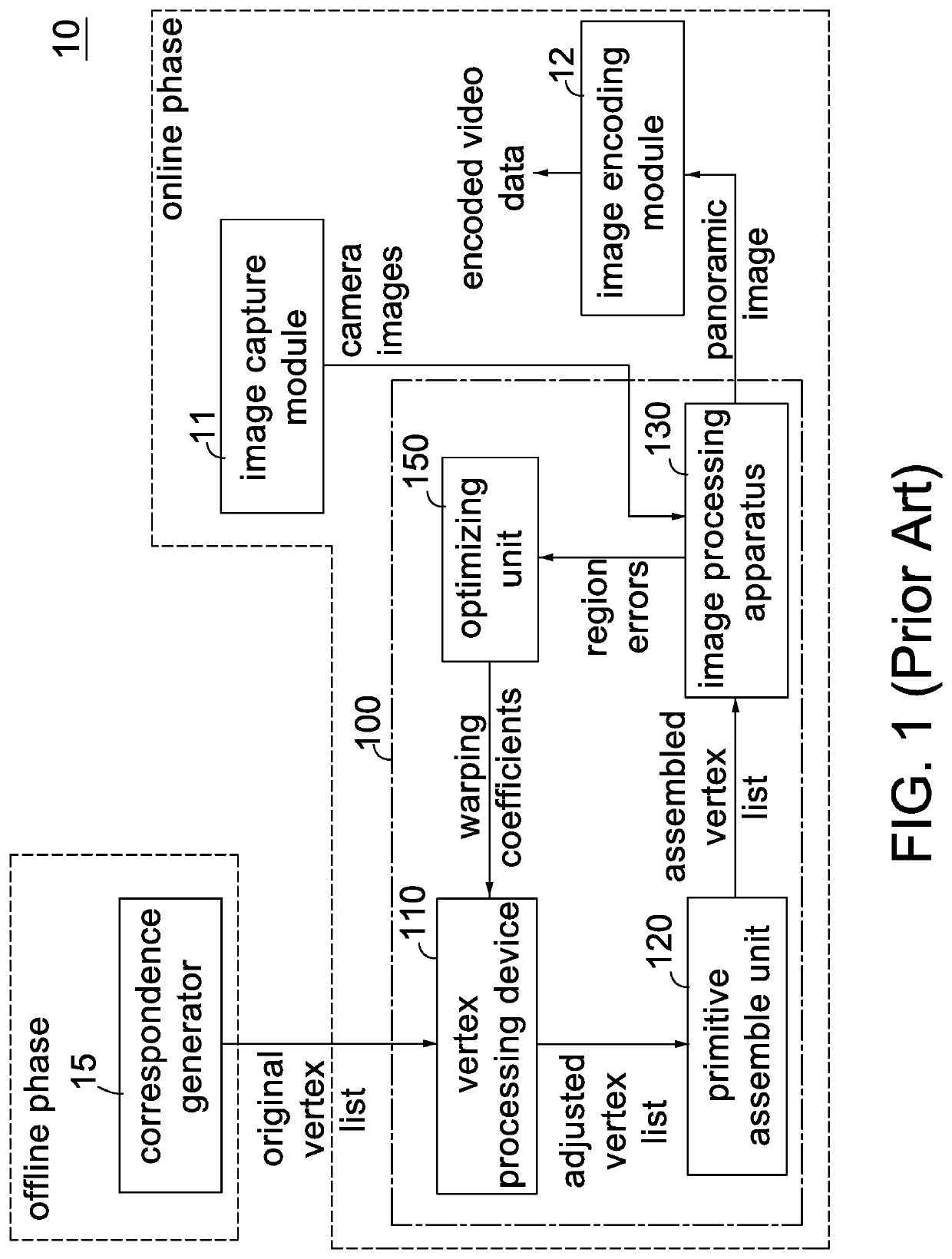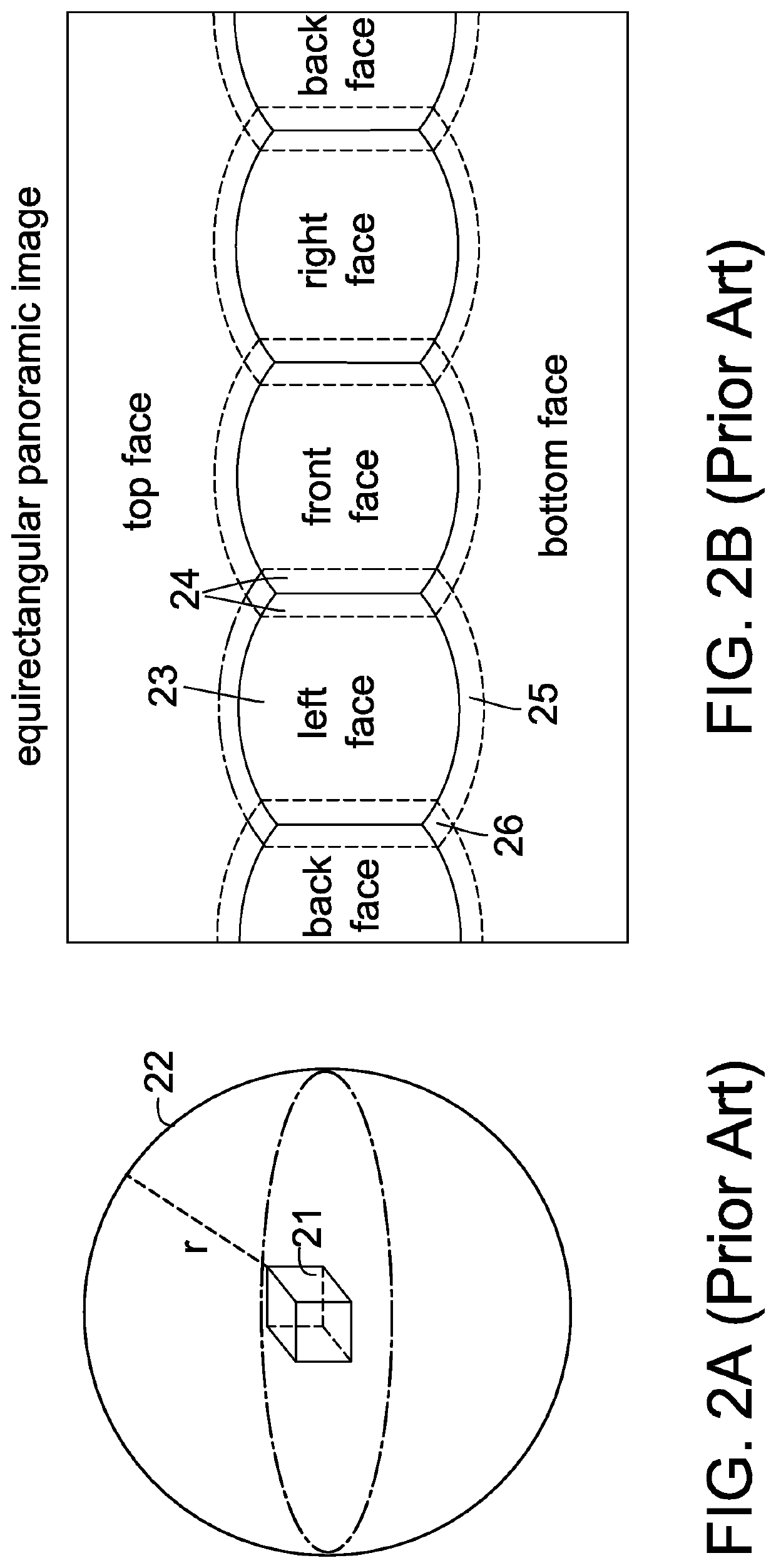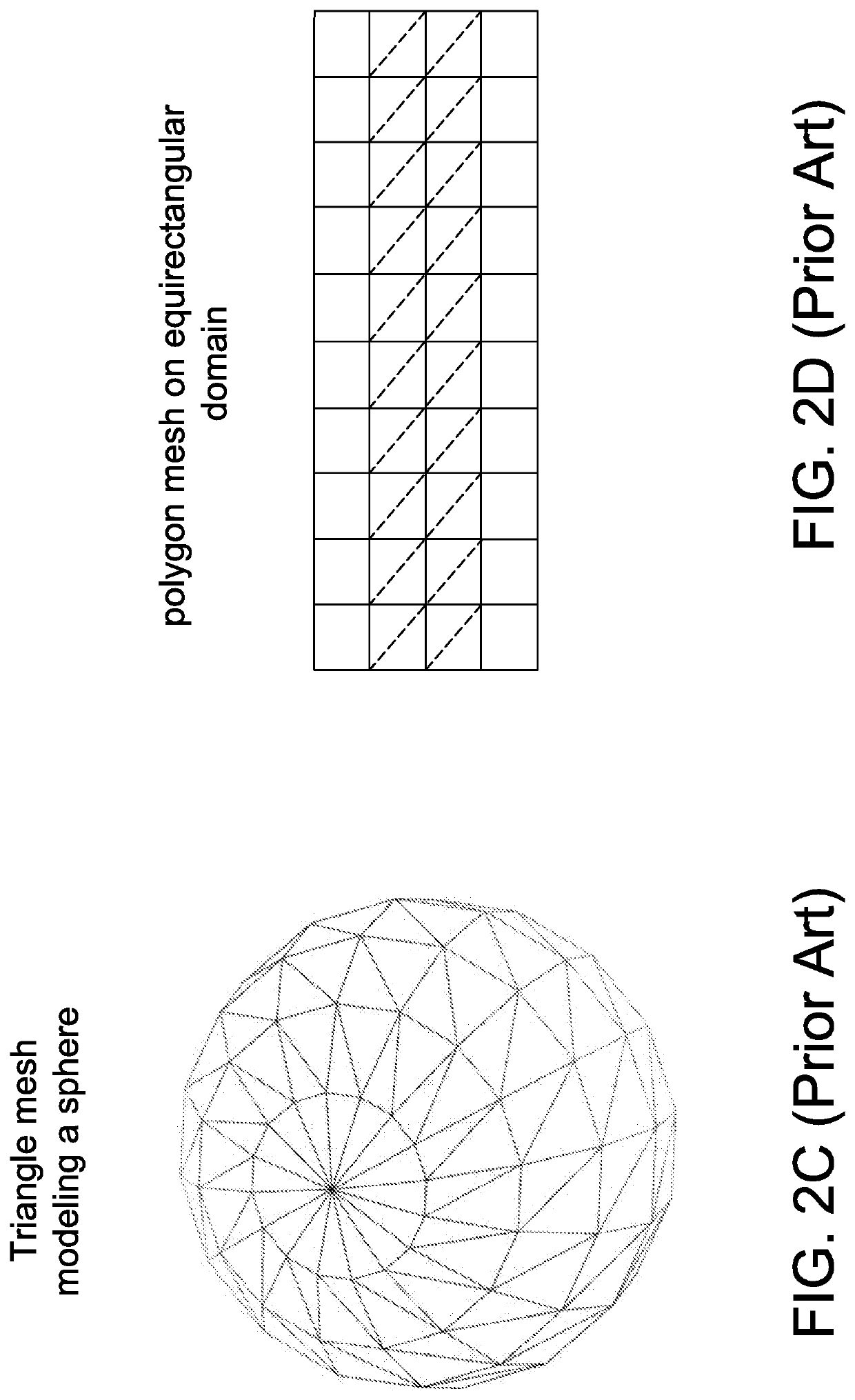Method of adjusting texture coordinates based on control regions in a panoramic image
a technology of texture coordinates and control regions, applied in the field of panoramic imaging, can solve the problems of enormous data volume that needs to be measured, and 5 doesn't guarantee the achievement of optimal results, so as to facilitate the generation of panoramic images, minimize the mismatch image defect, and improve the effect of image quality
- Summary
- Abstract
- Description
- Claims
- Application Information
AI Technical Summary
Benefits of technology
Problems solved by technology
Method used
Image
Examples
example camera
[0055 images include, with limitation, YUV color images, RGB color images, luminance images, edge images and motion vector images. As well known in the art, an edge image can be obtained by applying an edge detection operator (such as a Canny edge detector or a Sobel operator) over a normal color image; a motion vector image can be obtained by performing motion estimation using known algorithms (such as block-matching algorithm, pixel recursive algorithm or optical flow) over two consecutive camera images (such as two top-face camera images (t0) and (t1)).
[0056]For N>1, according to the N pairs of texture coordinates, N texture mapping engines 821˜82N of the texture mapping circuit 82 texture map the texture data from the N camera images using any appropriate method (such as nearest-neighbour interpolation, bilinear interpolation or trilinear interpolation) to generate N sample values (s1˜sN) in parallel. Here, the sample value (s1˜sN) may be a luma value, a chroma value, an edge va...
PUM
 Login to View More
Login to View More Abstract
Description
Claims
Application Information
 Login to View More
Login to View More - R&D
- Intellectual Property
- Life Sciences
- Materials
- Tech Scout
- Unparalleled Data Quality
- Higher Quality Content
- 60% Fewer Hallucinations
Browse by: Latest US Patents, China's latest patents, Technical Efficacy Thesaurus, Application Domain, Technology Topic, Popular Technical Reports.
© 2025 PatSnap. All rights reserved.Legal|Privacy policy|Modern Slavery Act Transparency Statement|Sitemap|About US| Contact US: help@patsnap.com



